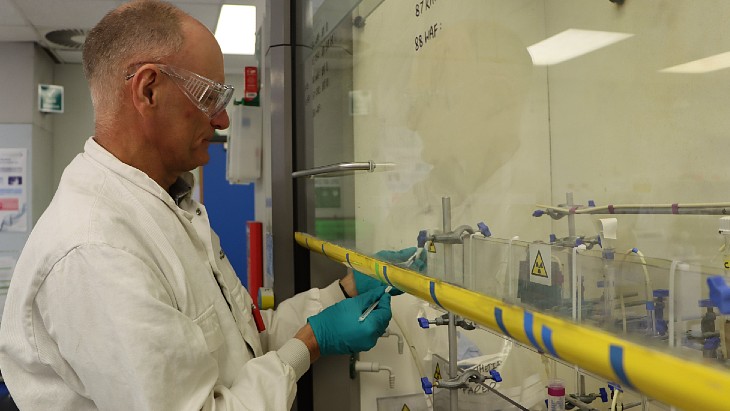The UK's Medicines Discovery Catapult and UK National Nuclear Laboratory (UKNNL) will use the funding - they are among 15 projects sharing GBP1.3 million (USD1.6 million) - to "explore potential options for making the material available to researchers and drug development companies. The long-term aim is to enable commercial production and routine use within the NHS (National Health Service) for the benefit of patients and the development of a new community".
Targeted Alpha Therapy is an emerging form of high-precision targeted treatment which provides few side-effects, with particular interest in lead-212 which has a half-life of nearly 11 hours - as it decays its emissions can be used to target and destroy cancer cells without damaging the surrounding healthy tissue.
Professor Paul Howarth, UKNNL CEO, said: "For decades UKNNL has processed the uranium from our nuclear power plants, constantly developing new techniques and capabilities. The harvesting of lead-212 requires very specific chemistry and is the key focus of some of the scientists in our laboratory in Preston. To be able to use the skills and techniques that they have developed to save lives is an incredible legacy.
"This funding will help to clarify how lead-212 can progress to the next step, to provide life-saving therapies for cancers in patients in the UK and ensure that the next generation of scientists can continue this vital work. What is most remarkable is the fact that this uranium has already powered our homes, and it is now being reused to potentially save lives."
Professor Chris Molloy, CEO of Medicines Discovery Catapult (MDC), said: "Precision radiopharmaceuticals present a huge opportunity ... creating these new targeted treatments from toxic waste could transform patient outcomes and give the UK back its domestic radiochemical capacity to serve its patients. To do this, we must invest in the infrastructure necessary to produce the materials and run patient trials.
"Combining MDC’s specialised radiochemistry and drug discovery expertise with UKNNL’s nuclear prowess, this project will accelerate important research to secure a sustainable supply of radionuclides for medicines. Doing so will unlock the development of game-changing treatments for cancer and improve patient lives."
UKNNL has been collaborating with researchers to enable access to radionuclides for investigations into new treatments and diagnosis, including for cancer, Alzheimer's and complex heart conditions. Researchers are keen to get materials to test and develop new treatments, and scale-up treatments where trials have been successful.
There have been on-going discussions in the UK about how the valuable radioisotopes in the nuclear legacy material in the country can be recognised and influence future plans for the material.
This area of medical research and treatment is a rapidly growing area - in November Orano subsidiary Orano Med laid the foundations for its EUR250 million (USD264 million) Advanced Thorium Extraction Facility plant in western France, the world's first industrial plant dedicated to the production of thorium-228, a precursor of lead-212, for radioligand therapies. The aim is to supply all the ATLab (Alpha Therapy Laboratories) facilities set to manufacture lead-212-based drugs for patients worldwide.
You can hear more about UKNNL's work getting value from legacy nuclear material in last April's World Nuclear News podcast:















